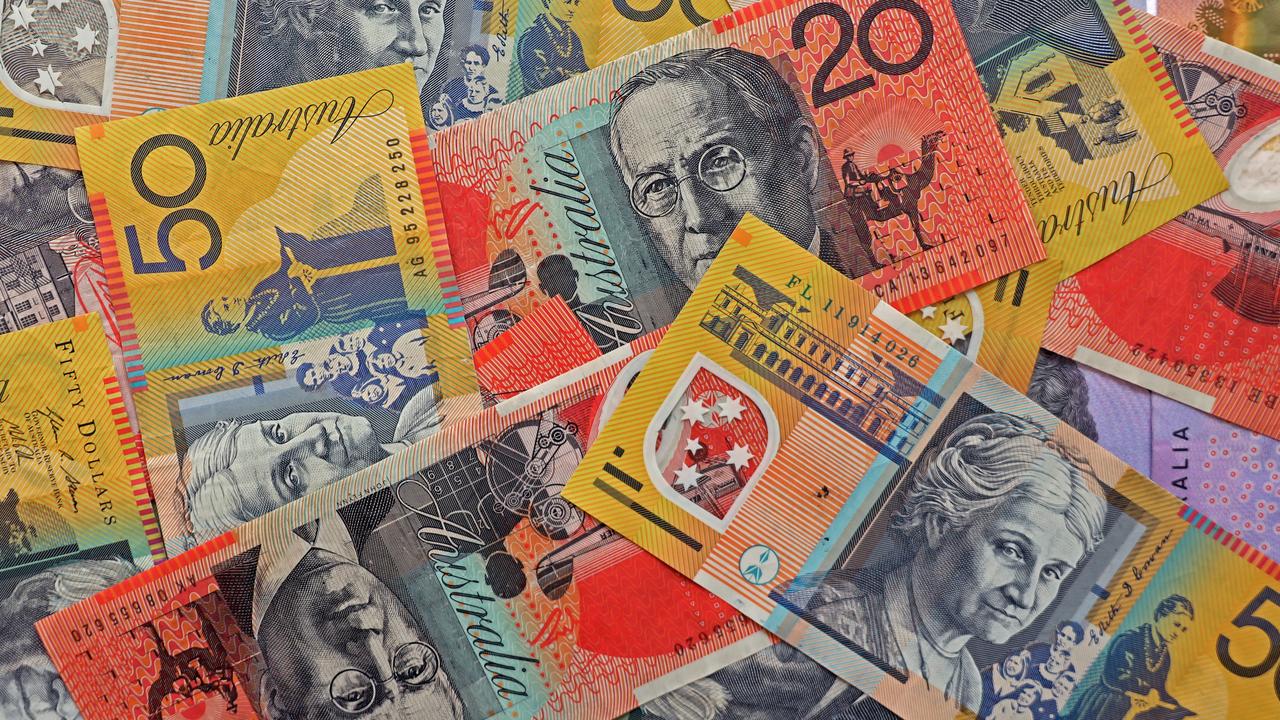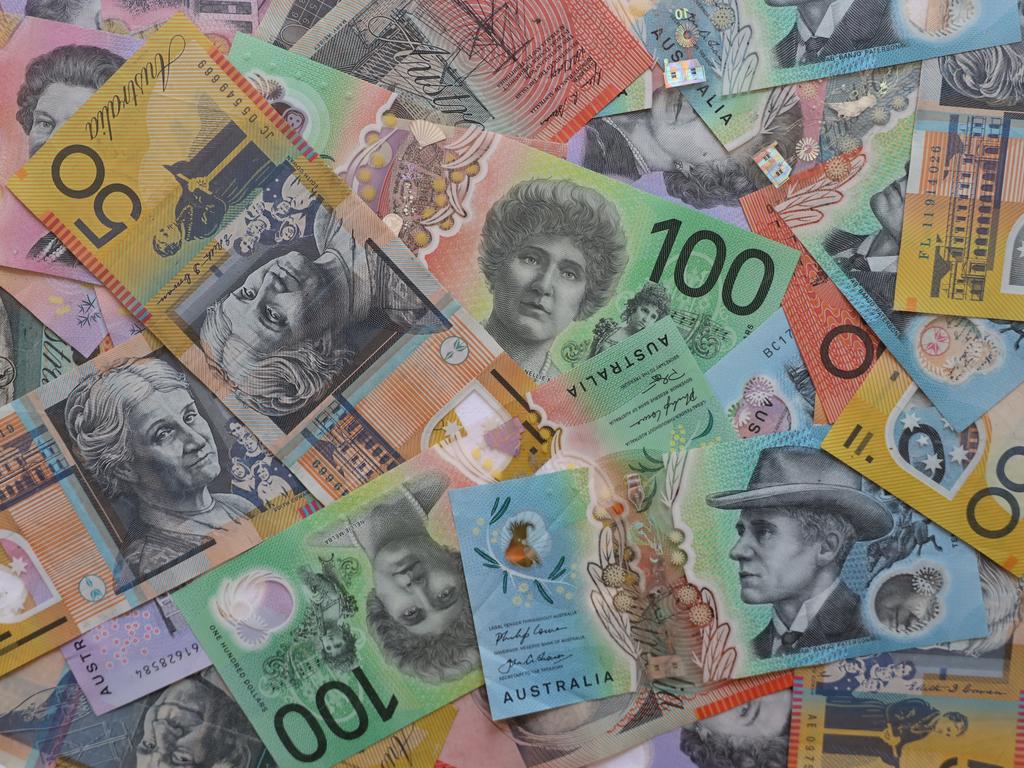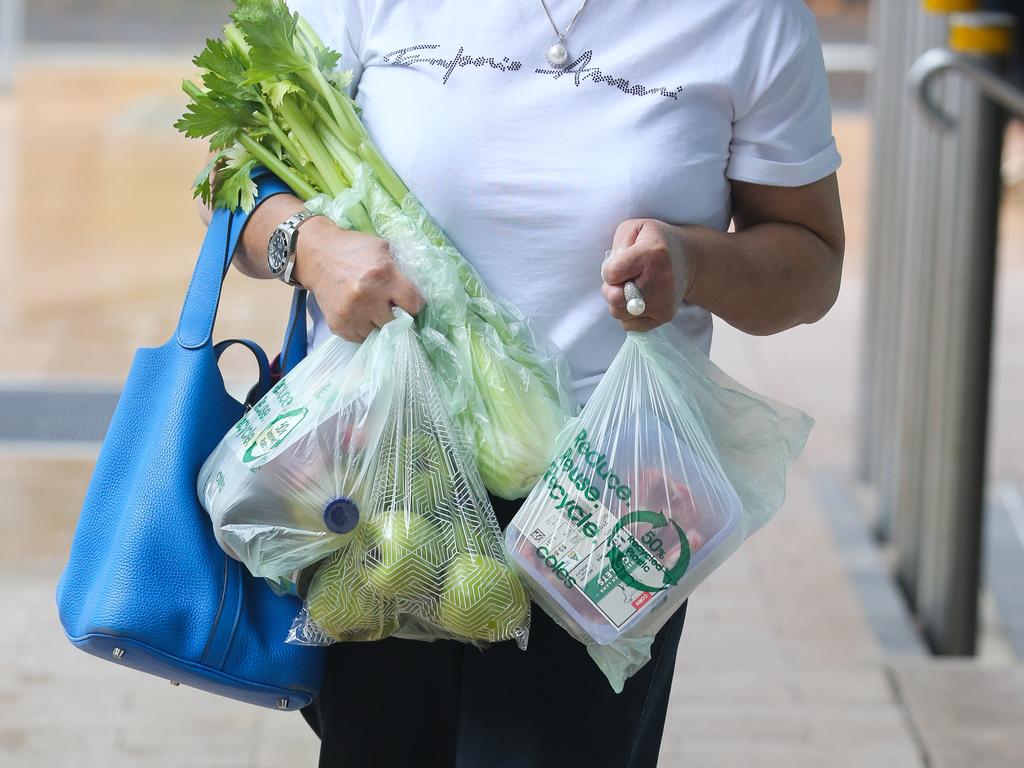Australians’ personal debt surpasses $70bn as inflation forces people onto credit cards and loans
Australia is facing a $70bn problem for the first time, as one of the hidden tolls of the nation’s cost of living crisis is revealed.

Australians now owe more than $70bn combined as the cost of living crisis propels an explosion in personal debts, comprehensive new polling shows.
Millions of people have turned to loans and credit cards to make ends meet over the past 12 months while inflation drove up household bills and the price of groceries and other consumer goods.
With inflation running at 7 per cent, research by finance comparison website Finder has found the average Australian now has $20,238 in debts spread across consumer loans and credit cards.
That’s an increase of 11 per cent from a year earlier, when the average person had $18,301 worth of credit card and consumer loan debt, according to the study.
Finder’s data showed some 10.9 million Australians — about 54 per cent of the adult population — were using a credit card last month.
And about 2.8 million Australians, or one-in-seven people, have a personal loan. The same proportion of the population has a car loan.
On average, each Australian now holds $1,948 in credit card debt, $6,920 in personal loans and a car loan with a balance of $11,370, according to Finder’s consumer sentiment tracker.

Conducted by pollster Qualtrics, the survey aims to comprehensively chart consumer sentiment in Australia on an ongoing basis.
Finder says the survey covers a nationally-representative, growing sample of more than 51,000 people, with 1,000 people being added to the poll each month.
People surveyed are asked how they are faring in a range of areas including wealth, happiness, financial sentiment and environmental awareness.
The survey found credit card debts have risen to $18.6bn altogether while personal and car loans are now worth an estimated $19.6bn and $32.3bn respectively.
Personal debts across have soared to $70.5bn in total.
While government and Reserve Bank officials believe inflation has started to moderate after peaking at the end of last year, consumer prices remain high and aren’t expected to return to more normal levels until late 2024.
Separate research from Finder has found 6.1 million or 30 per cent of Australians are extremely stressed about their current financial situation, an increase of 22 per cent compared to a year ago.

Finder’s personal finance expert, Amy Bradney-George, said the spiralling cost of living had forced many people to borrow money simply to pay for essentials.
“Many people are having to turn to credit cards and personal loans just to cover day-to-day expenses such as food and electricity,” she said.
“Debt is making it even more stressful for people to put food on their tables.”
Urging Australians to protect their “financial health”, Ms Bradney-George pointed to the so-called debt snowball method as one way to regain control.
“If you start by paying off your smallest debt first, you see quick wins that help build momentum,” she said.
She also recommended people contact their lenders to see if they can set up payment plans that fit with their income.
“If your circumstances have changed, you can also talk to your bank’s hardship support team about different options such as payment pauses,” she said.
“You could also shop around for better rates or consider debt consolidation to help manage repayments.”
Australians have been accumulating a mountain of personal debt at the same time as mortgage-holders grapple with higher repayments driven by rising interest rates.
In addition, health insurance premiums, HELP debts and energy bills for some households and small businesses have all either grown or are about to grow.
The cost of electricity will soon rise again for certain households and small businesses in some parts of the country, with the Australian Energy Regulator confirming prices will increase by between 20 and 25 per cent from July 1 in NSW, South Australia southeast Queensland.
Despite the federal government’s intervention in the energy market and wholesale power prices being lower than they were this time last year, customers on the default energy offer face significant price hikes over the 2023-2024 financial year.
About 9 per cent of customers or 600,000 people are on a default market rate, which acts as a safety net or benchmark to ensure users aren’t overcharged.

However, Anthony Albanese told parliament on Thursday that five million Australian families and one million small businesses would soon get relief on their power bills.
Under the policy announced at the end of last year in response to soaring electricity prices propelled in part by the war in Ukraine, the federal government will give money to the states and territories to take money off people’s energy bills this winter.
But not everyone will benefit from the rebates, because they will only flow to households on income support and to small businesses that meet certain eligibility criteria.
Speaking in the parliament on the final sitting day before politicians flew home for their winter break, the Prime Minister also rattled off a list of some of Labor’s other cost of living measures.
“More than 1 million Australians will pay less for childcare next month; 11 million Australians will pay less to see a doctor. Because of our budget, another six million Australians will pay less for their medicines.”



